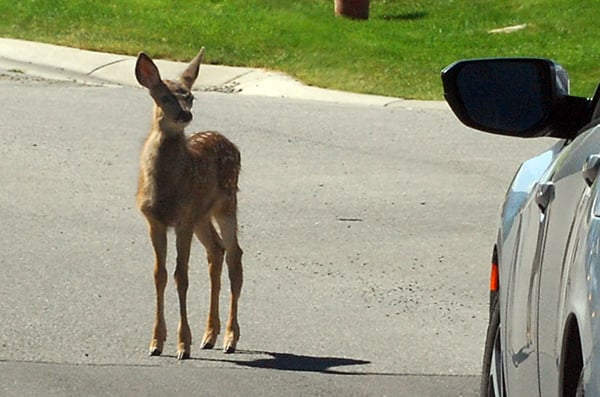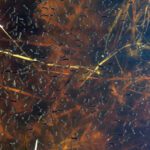Home »

CWD worries prompt city to ask B.C. to deal with deer
City of Cranbrook council Sept. 14 unanimously agreed to formally request the Province of British Columbia to manage the urban deer herd in the city.
The city added it wants the province to deal with its deer to help prevent Chronic Wasting Disease (CWD) from infecting the local deer population, and minimize the risk of potential CWD transfer to other urban wildlife, pets or residents.
“Staff is of the opinion that the city is no longer in a position to be able to safely manage the urban deer population. Staff recommends that council lobby the provincial government to undertake operations to reduce the urban deer population to minimize the potential for CWD to infect the local herd,” noted a city Development Services report to council.
Staff will no longer recommend the use of clover traps, as this method of culling deer is not working and is not sustainable. Operational costs are high with minimal impact in the removal of problem deer from the urban herd in areas where the highest numbers of aggression complaints are generated, the report outlined.
“In recent months, staff has become aware of a growing concern of Chronic Wasting Disease (CWD) across the border in Libby, Montana, and other U.S. urban areas. Given our close proximity to Montana and Idaho, and the well documented migratory patterns of mule and white-tail deer, there is concern of CWD finding its way into the East Kootenay and inevitably into the local urban deer population in Cranbrook,” the staff report said.
“According to the BC Centre for Disease Control (BCCDC), Chronic Wasting Disease is a deadly infection that affects the central nervous system of cervids (members of the deer family) such as mule deer, white-tailed deer, elk, moose and caribou. The disease is caused by an abnormal protein called a prion, which can be transmitted through saliva, urine, feces, carcasses and even plants and soil. The infected prion can survive in the environment for many years. There is no direct evidence that the disease can be transmitted to humans and there have been no cases of disease in humans. However, the BCCDC says people are advised to take precautions because the potential for transmission cannot be excluded.”
Coun. Wes Graham said the council vote “is long overdue.” He added the city should engage Kootenay East Tom Shypitka on the matter, too.
“The province needs to step up and deal with their deer,” he said.
Mayor Lee Pratt agreed. “We’ve been saying that for the last four years. It’s your deer. You make the rules, so deal with it,” he said of the province.
For more on CWD, please check out e-KNOW Saturday morning ((Sept. 19). Local biologist Ian Adams provides a look at the ongoing wildlife crisis.
Lead image: A common Cranbrook sight; deer on the road. Ian Cobb/e-KNOW photo
e-KNOW







